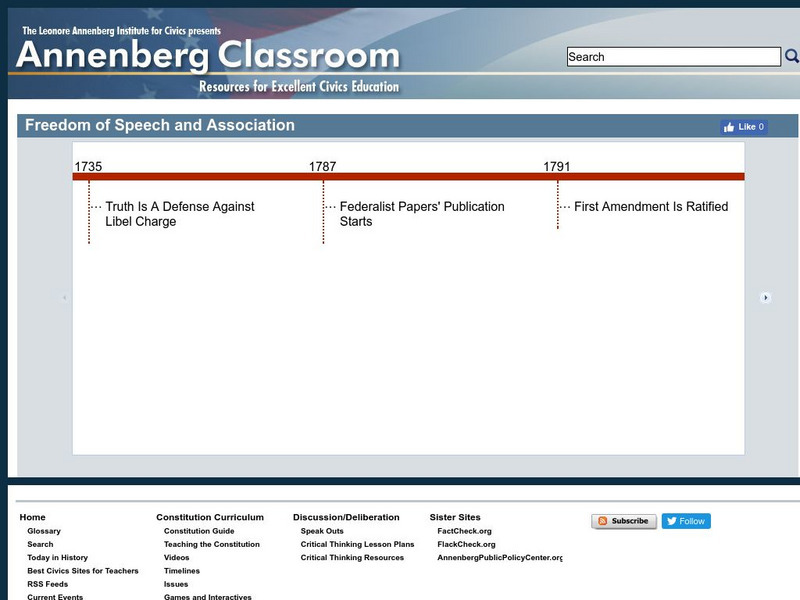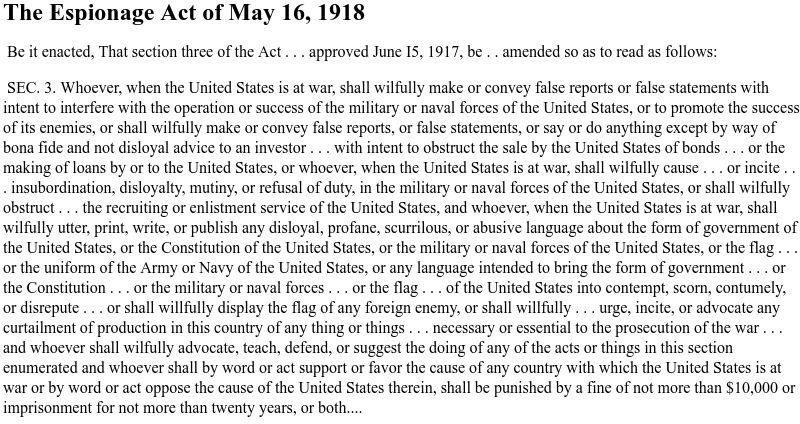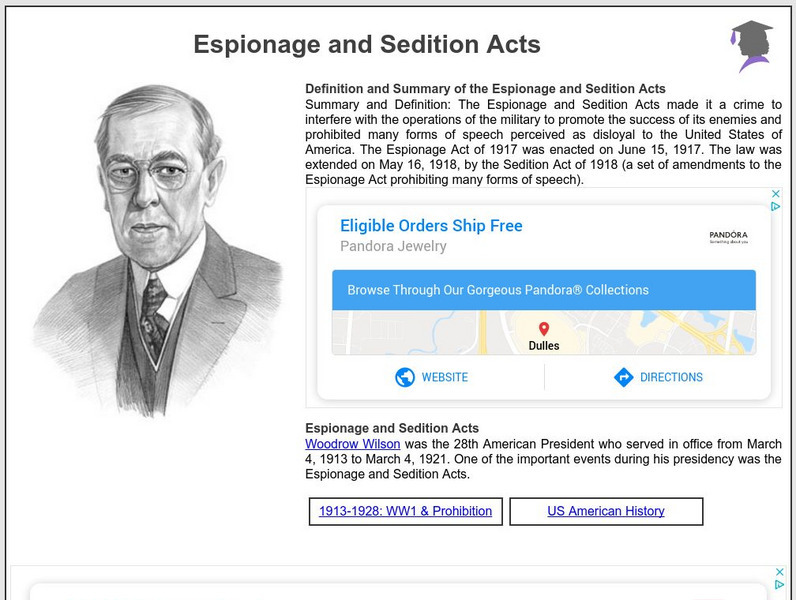Digital History
Digital History: Espionage and Sedition Acts
Suspension of civil liberties by the government is always a radial act. Read about why President Wilson and the Congress thought this was necessary upon the U.S. entrance to World War I, and see who really suffered from the enforcement...
PBS
American Experience: Espionage and Sedition Acts
As progressive a president as Woodrow Wilson was, when the U.S. joined World War I, he signed legislation that made it a crime to criticize the government. Read about the espionage and sedition acts that were passed and how they were...
Annenberg Foundation
Annenberg Classroom: Freedom of Speech and Association
Check out this interactive timeline freedom of speech and association in the United States.
Khan Academy
Khan Academy: Ap Us History: 1890 1945: The United States in World War I
Discusses what triggered World War I, why the United States joined the war, and the impact the war had on life in the United States. Includes questions for students at end.
George Mason University
George Mason University: The Espionage Act of May 16, 1918
The original text of Section 3 of the Espionage Act of May 16, 1918 is provided at this site.
Siteseen
Siteseen: American Historama: Espionage and Sedition Acts
Comprehensive overview presents detailed facts and information on the Espionage and Sedition Acts that made it illegal to write or speak anything critical of U.S. involvement in WWI.







